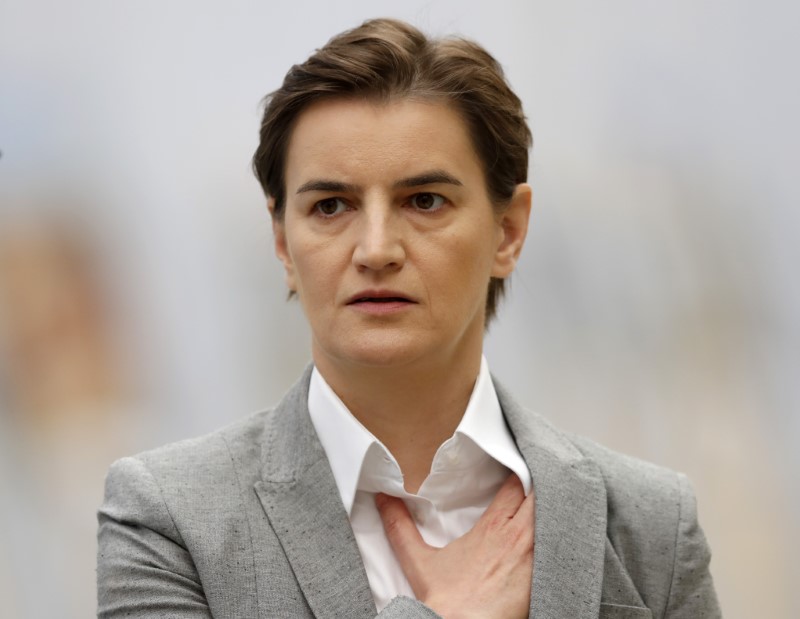BELGRADE (Reuters) - Serbia and Kosovo should stop provoking each other and resume talks on normalizing relations two decades after the end of their war, a senior U.S. envoy said on Friday.
Western officials see lingering Serbian-Kosovar tensions as a risk to stability in southeastern Europe. Both countries seek European Union membership but have been told they must normalize ties to advance toward integration with the West.
NATO carried out air strikes in 1999 to halt killings and expulsions of Kosovo Albanian civilians by Serbian security forces in a counter-insurgency campaign.
Albanian-majority Kosovo declared independence in 2008 and won recognition from the United States and most EU countries, but not Serbia or its big power patron Russia, and some 4,000 NATO peacekeepers remain in the tiny Balkan country.
Sporadic normalization talks have made little headway and Kosovo's nationalist-minded government recently imposed 100 percent tariffs on goods imported from Serbia, as well as pass legislation to set up a national army.
"The United States calls for the abolition of tariffs, an end to mutual provocations and resumption of dialogue," David Hale, U.S. Under Secretary of State for Political Affairs, said in a Serbian-language tweet issued by the U.S. Embassy in Belgrade.
His appeal came after a meeting with Serbian President Aleksandar Vucic in Belgrade, and two days after Kosovo's parliament adopted a 12-point negotiating platform that stipulates mutual recognition between Serbia and Kosovo, while preserving current borders between the two.
Serbian Prime Minister Ana Brnabic said on Friday the Kosovo negotiating platform was "against common sense ... It represents a death blow to the talks...Serbia's reaction will be appropriate, moderate and in the interest of our people".
Both Vucic and Kosovo President Hashim Thaci have previously floated ideas about either "correction of borders" or "delimitation" - terms interpreted by analysts as land swaps.
Vucic has repeatedly said Serbia will not resume talks with Kosovo until it abolishes import tariffs.
Pristina wants Serbia to fully recognize its statehood and stop preventing it from joining the United Nations and other international organizations including Interpol, the global police agency.

Hale is also scheduled to meet Kosovo Albanian leaders in Pristina on Saturday.